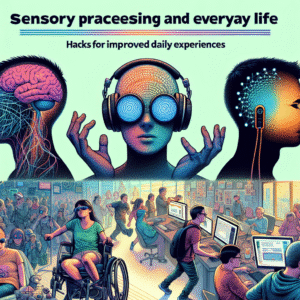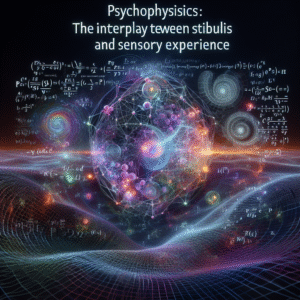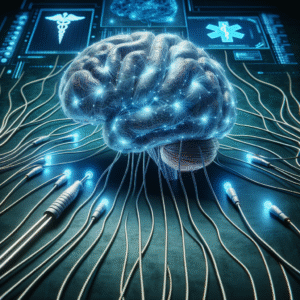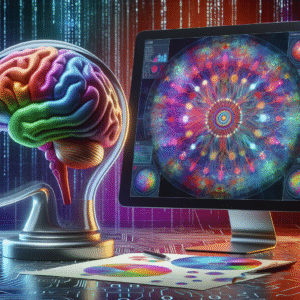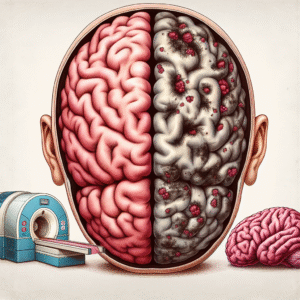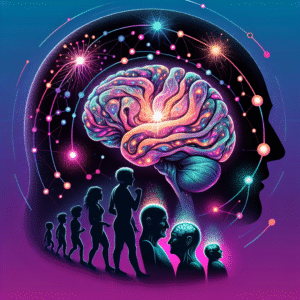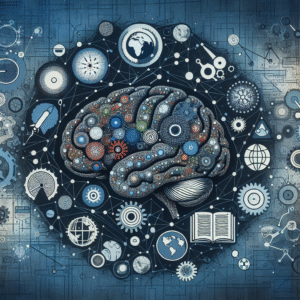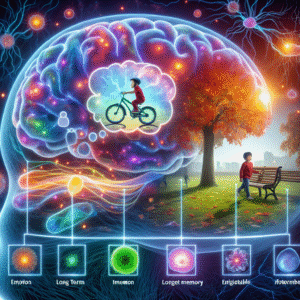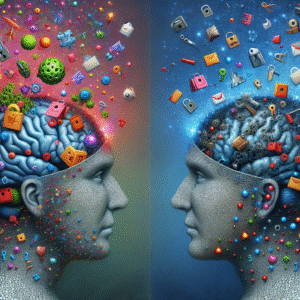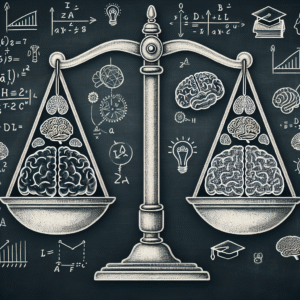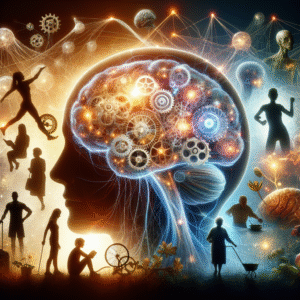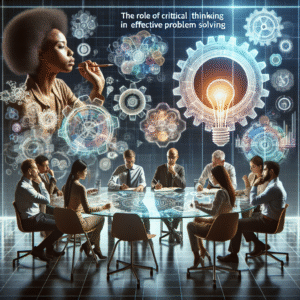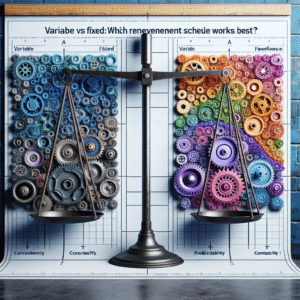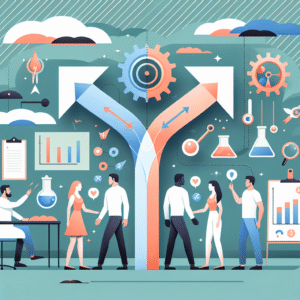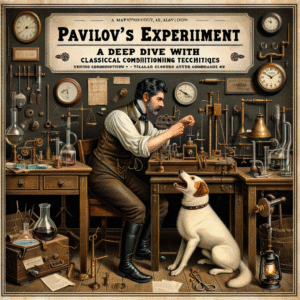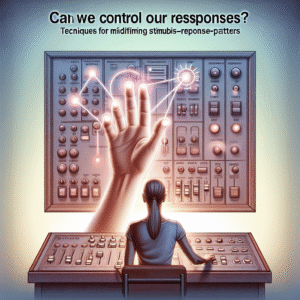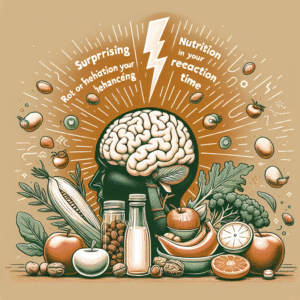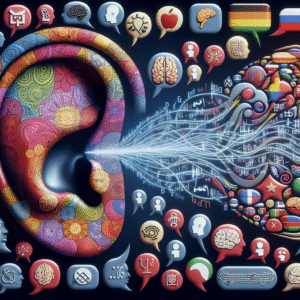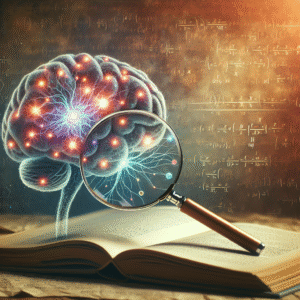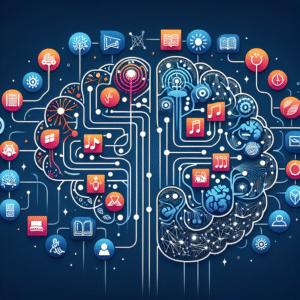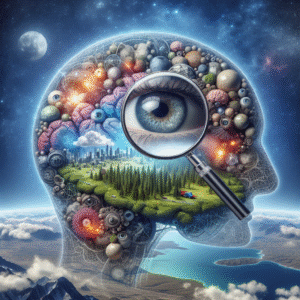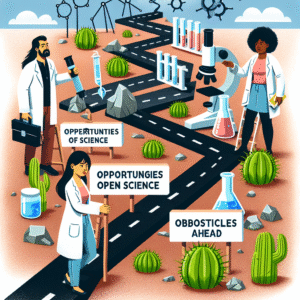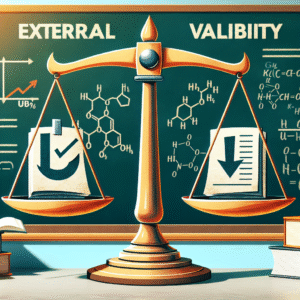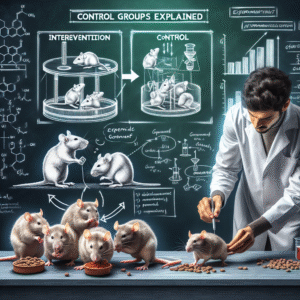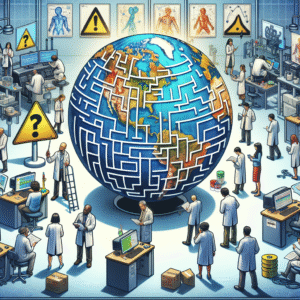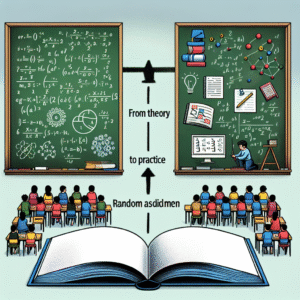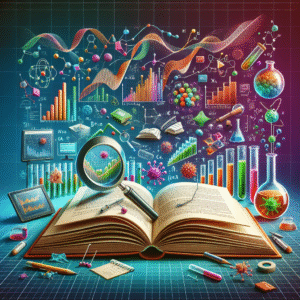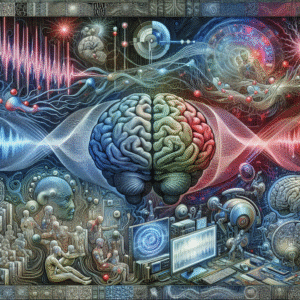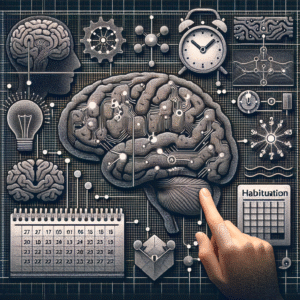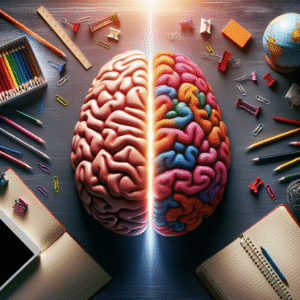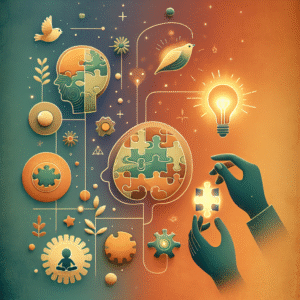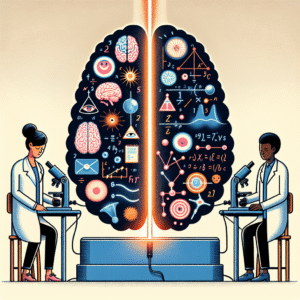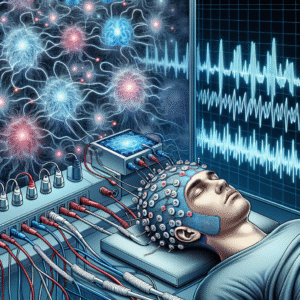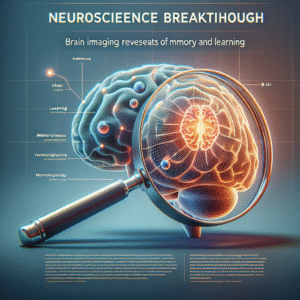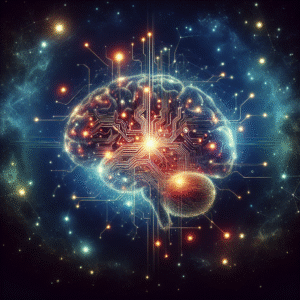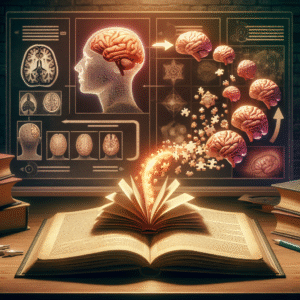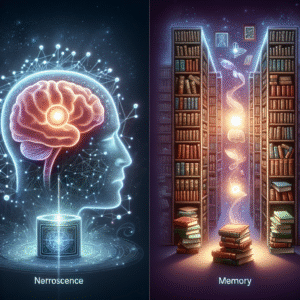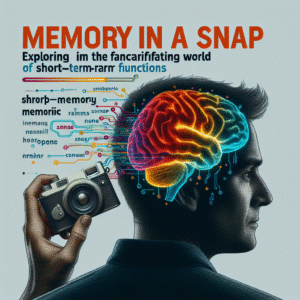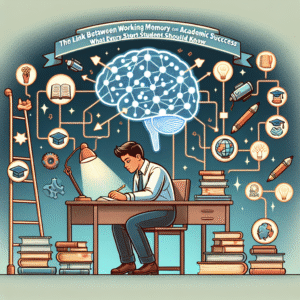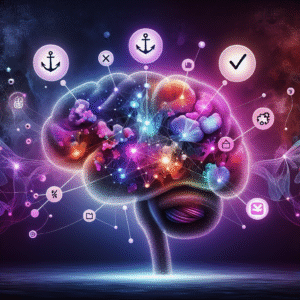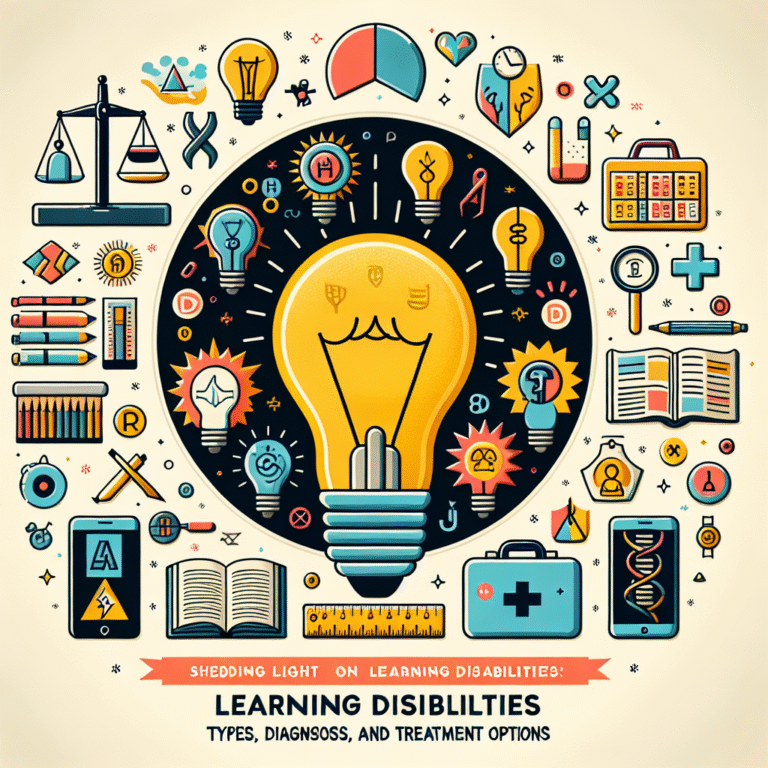Introduction In a world bursting with stimuli, from bustling city noises to the bright glare of smartphones, how we process sensory information profoundly impacts our day-to-day experiences. Understanding sensory processing isn’t just a niche topic; it’s essential for everyone looking to enhance their daily life. In this article, we will explore sensory processing and everyday life through various practical...
Open Science
Introduction Imagine savoring a piece of chocolate—its sweet, rich flavor melting in your mouth. You might think your experience is entirely subjective, embedded in your personal taste. But behind this seemingly simple pleasure lies a complex dance of psychology and physics that reveals much about human perception. Welcome to the world of psychophysics: the interplay between stimuli and sensory...
Introduction Imagine a world where doctors could effectively diagnose mental health conditions, monitor neurological disorders, and even interface with machines using just brain waves. This vision isn’t merely a science fiction dream; it’s rapidly becoming a reality, thanks to the remarkable advancements in electroencephalography (EEG). Harnessing brain waves: how EEG is shaping the future of medicine is not just...
Introduction Imagine peering into the intricate machinery of the human mind, unearthing the secrets behind thoughts, emotions, and decision-making processes. Functional Magnetic Resonance Imaging (fMRI) offers us this unprecedented glimpse into our internal world. As a powerful tool in neuroscience, fMRI has transcended traditional boundaries, paving the way for breakthroughs in psychology, psychiatry, and cognitive science. In this article,...
Introduction Imagine a world where doctors can peer into the living brain, uncovering the mysteries of neurodegenerative diseases before they wreak havoc on mental and emotional well-being. This isn’t science fiction; it’s the reality crafted by advanced brain imaging technologies. The impact of brain imaging on diagnosing and treating neurodegenerative diseases has transformed both the medical landscape and patient...
Introduction Imagine your brain as a dynamic city, constantly being rebuilt and redesigned, with roads and buildings reshaping themselves according to the needs of their inhabitants. This flexible ability isn’t just a poetic illustration; it reflects the phenomenon known as neuroplasticity: the brain’s ability to adapt and evolve at any age. In recent years, neuroplasticity has emerged as a...
Introduction Have you ever marveled at how you can recognize a friend from a distance, understand complex ideas, or even recall childhood memories tied to specific words? These cognitive feats hinge on the intricate neural pathways of human memory, particularly semantic memory. This essential cognitive function enables us to make sense of the world around us by organizing and...
Introduction Have you ever found yourself lost in thought, reminiscing about a cherished moment from your past? Perhaps it was a childhood birthday party filled with laughter or a vacation that seemed to stretch into eternity. Our ability to conjure these vivid memories is a striking display of what psychologists call episodic memory. Understanding how our minds navigate this...
Introduction Have you ever found yourself transported back in time by a simple scent or a melody? These vivid recollections often hinge on the emotions tied to our memories. Understanding the role of emotion in long term memory isn’t just a psychological curiosity; it’s essential for grasping how we construct our identities and navigate our lives. This article delves...
Introduction Have you ever placed your keys in a "safe" spot only to forget where you put them moments later? This common forgetfulness isn’t just an annoyance—it highlights the intriguing complexity of our cognitive processes. Understanding the intertwining aspects of forgetfulness and function, particularly focusing on the role of short-term memory in learning, is pivotal for students, educators, and...
Introduction Imagine sitting in a classroom, absorbing information from a teacher, with textbooks and notes scattered around you. The teacher, full of enthusiasm, dives into complex concepts, charts, and theories. Yet, instead of feeling enlightened, you feel overwhelmed. This feeling is more common than you might think. The interaction between cognitive load and working memory plays an essential role...
Introduction Imagine you’re in a crucial business meeting. You’re tasked with making high-stakes decisions that could impact your entire company. As the discussion unfolds, you suddenly become aware of an overwhelming sense of confidence, perhaps unexplainably so. Unbeknownst to you, this feeling might not stem from your extensive experience or preparation; instead, it could be influenced by cognitive biases...
Introduction In a world brimming with challenges, the ability to solve problems efficiently has never been more crucial. From personal dilemmas to complex organizational issues, the undercurrents of effective problem solving flow through the veins of critical thinking. The role of critical thinking in effective problem solving is not just important; it is essential. Imagine navigating through a dense...
Introduction Imagine sitting in a boardroom packed with eager minds, all vying for the best solution to a complex problem. Each person brings unique perspectives, experiences, and biases. However, the very dynamics within this group can determine whether they innovate brilliantly or spiral into confusion. Welcome to the fascinating world of group dynamics and decision-making, where the interplay of...
Introduction Imagine stepping into a casino, the sound of clinking coins and the thrill of the spinning wheel creating an electrifying atmosphere. Why do people flock to places like this? The answer lies in the concept of reinforcement schedules. Understanding the debate of Variable vs. Fixed: Which Reinforcement Schedule Works Best? can empower you to boost motivation in everyday...
Introduction In a world brimming with knowledge and ever-evolving learning techniques, one principle stands out: Behavior is Bidirectional: The Role of Operant Conditioning in Learning. This concept is not just a psychological theory; it’s a fundamental truth that influences how we teach, learn, and grow in various aspects of life. Understanding operant conditioning allows us to grasp the incredible...
Introduction In the early 20th century, a seemingly simple experiment involving a dog changed our understanding of behavioral psychology forever. Ivan Pavlov, a Russian physiologist, discovered a phenomenon that would lay the groundwork for modern behavioral therapy and education: classical conditioning. Known today as "Pavlov’s Experiment," this foundational work illustrates how learning occurs through associations. Understanding this technique offers...
Introduction In a world brimming with stimuli—whether from social interactions, work pressure, or media consumption—our responses can sometimes feel automatic, even uncontrollable. The fundamental question arises: Can we control our responses? Techniques for modifying stimulus-response patterns may offer the key to changing how we react to the world. From the emotional outbursts that disrupt our relationships to the unproductive...
Introduction Imagine standing at the starting line of a race, heart pounding in your chest, adrenaline coursing through your veins. You know that every millisecond counts. Did you know that the foods you eat can significantly influence how quickly you react? As athletes and everyday individuals alike strive for peak performance, the surprising role of nutrition in enhancing your...
Introduction In the rapidly evolving world of artificial intelligence (AI), few concepts have garnered as much attention (pun intended!) as attention mechanisms. You might be asking yourself why these mechanisms matter, especially today, when AI systems are driving breakthroughs across various industries, from healthcare to entertainment. In this article, we will explore the intricacies of attention mechanisms, explore their...
Introduction Imagine walking through a bustling city filled with the sounds of conversations, music, and distant sirens. Amidst this auditory chaos, every sound carries meaning, shaping our thoughts and interactions. At the heart of this experience lies an often-overlooked pillar of human communication: auditory perception. Understanding The Role of Auditory Perception in Language Development and Communication is essential not...
Introduction Have you ever wondered why some people gaze at a piece of art and see beauty while others see chaos? Or why certain symbols resonate deeply in one culture but are utterly perplexing in another? The impacts of culture on visual perception are not merely academic; they influence our day-to-day interactions, artistic expressions, and even our understanding of...
Memory is an essential part of being human, shaping our identities, informing our decisions, and allowing us to connect with the world around us. But what makes memory retrieval work? Why do we sometimes struggle to recall names or dates, while other moments seem to trigger a flood of memories? In "Exploring the Mechanics of Memory Retrieval: What Neuroscience...
Introduction Imagine walking into a room, only to realize you’ve forgotten why you entered. This fleeting moment of forgetfulness might leave you puzzled, but it underscores a crucial aspect of our existence: memory. From recalling joyous moments of our childhood to anxious memories of past failures, memory shapes our identities and experiences. In this article, Memory Encoding Explained: The...
Introduction In an era where information is available at the tip of our fingers, the need to adopt effective learning methodologies has never been more crucial. Harnessing the Power of Learning Theories in the Digital Age is imperative for educators, students, and professionals alike. As we transition into a future dominated by technology, understanding how to leverage these theories...
Introduction Have you ever wondered why two people can witness the same event yet come away with completely different interpretations? The truth is, perception shapes our reality. It influences our thoughts, decisions, relationships, and even our happiness. The Power of Perception: Understanding How We Interpret the World is not just a philosophical concept; it is a fundamental aspect of...
Introduction In an era defined by rapid technological advancements and information sharing, the science community finds itself at a transformative crossroads. The rise of Open Science presents a promising landscape where knowledge is freely accessible, fostering collaboration and accelerating innovation. However, along this promising path lie significant challenges that require careful navigation. This article delves into "Navigating the Challenges...
Introduction: The Crucial Importance of Replication In the vast landscape of scientific inquiry, few topics evoke as much discussion and debate as replication. The Double-Edged Sword of Replication: Challenges and Opportunities in Research has become a rallying cry for scientists seeking both validation and innovation. Replication—the process of repeating research to see if the original results hold true—offers unique...
Introduction In today’s complex business landscape, where ethical missteps can lead to catastrophic consequences, the necessity for crafting a culture of ethics: how to develop effective guidelines has never been more critical. Organizations are not just held accountable to their shareholders anymore; they must also answer to employees, customers, and the broader community. A well-defined code of ethics is...
Introduction Research is a powerful tool that can change the world. However, if the outcomes of your study don’t accurately apply to the broader population, you may inadvertently undermine your contributions to science. This is where External Validity 101: Why It Matters for Your Research Outcomes comes into play. Understanding external validity is essential for researchers aiming to ensure...
Introduction In the vast landscape of research, the pursuit of knowledge is often marred by missteps that can lead to significant failures. When researchers strive to ensure that their findings are valid, they grapple with the concept of internal validity. This pillar of research integrity focuses on the degree to which an experiment accurately reflects the relationship between variables,...
Introduction In the realm of statistics, few topics spark more confusion and debate than p-values. Whether you’re a seasoned researcher or someone who has just begun to navigate the complexities of data analysis, understanding p-values is crucial for accurate hypothesis testing. These seemingly simple numbers hold significant implications for making informed decisions based on data. In this article, we...
Introduction In today’s data-driven world, understanding the nuances of statistical significance is crucial for impactful decision-making. The role of statistical significance in modern data analysis transcends mere numbers; it shapes strategies, influences outcomes, and drives innovations across industries. Just as a compass guides a traveler, statistical significance provides direction in the tumultuous sea of data, ensuring that analysts can...
Introduction In today’s data-driven world, the ability to anticipate future trends can make the difference between soaring success and being left behind. Businesses are inundated with raw data, but only those that harness the power of predictive analytics can transform that data into actionable insights. Predictive Analytics: Transforming Raw Data into Future Forecasts is not just a buzzword; it’s...
Introduction Imagine a world where the boundaries of medical research are redefined. One where the age-old concept of the placebo—a pill with no active medicinal value—takes on a new significance. The ongoing evolution in the understanding and implementation of placebos has immense implications for the future of clinical research. "Rethinking Placebos: The Future of Control Groups in Clinical Research"...
Introduction In the realm of scientific research and experimental design, one concept stands above others as a cornerstone of credibility: the control group. Imagine embarking on a journey of exploration, only to find that without a map, your progress becomes erratic and unclear. Control groups serve as that essential map, guiding researchers through the complexities of data interpretation and...
Introduction In today’s interconnected world, the success of research studies hinges not just on methodology, but also on the depth and breadth of participant sampling. Particularly when it comes to diverse populations, navigating the challenges of participant sampling in diverse populations is no small feat. Without appropriate representation, research findings risk being skewed, leading to ineffective solutions and poor...
Introduction In the rapidly evolving landscape of education, the importance of sound research methodologies cannot be overstated. Among these, random assignment stands out as a critical strategy promising unbiased results and impactful findings. Yet, transitioning from theory to practice: implementing random assignment in educational studies is often fraught with challenges. The question remains: How can educators and researchers successfully...
Introduction In a world where data is king and innovation is a constant pursuit, experimental design stands out as a critical pillar of discovery and advancement. The phrase "Beyond Basics: Advanced Techniques in Experimental Design" signifies a deep dive into methodologies that move beyond simple frameworks. By harnessing these advanced techniques, researchers, marketers, and scientists can unlock new insights...
Introduction Imagine a world where the boundaries between our physical reality and digital overlays blur seamlessly, where every glance reveals hidden insights, guiding us through our daily lives. Welcome to the exhilarating realm of Seeing the Unseen: The Future of Eye Tracking in Augmented Reality. As technology advances, eye tracking is set to transform augmented reality (AR) into an...
Introduction In an era where the intersection of neuroscience and technology is flourishing, the concept of Event Related Potentials (ERPs) in action showcases groundbreaking innovations in Brain-Computer Interface (BCI) technology. Imagine a world where individuals can control devices merely with the power of their thoughts. This potential is no longer a distant dream; it’s unfolding in exciting, tangible ways....
Introduction In today’s diverse workplace environments, the significance of protecting employees from allergic reactions has never been more crucial. With an increasing number of individuals facing allergic sensitivities, understanding sensitization in the workplace: protecting employees from allergic reactions is vital for employers. Whether it’s exposure to specific chemicals, dust, or even food particles, allergies pose a serious threat to...
Introduction In the vibrant realm of behavioral psychology, one concept stands out for its profound simplicity yet profound implications: habituation. Have you ever noticed how the sound of a humming refrigerator fades into the background as you become absorbed in your work? This is habituation at work— our mind’s remarkable ability to adjust to repetitive stimuli over time. Understanding...
Introduction In an age where multitasking is often hailed as a superpower, the phrase "Brain on a Split" encapsulates the phenomenon of divided attention. This article explores the intricate relationship between divided attention and learning, shedding light on how the human brain functions when bombarded with multiple stimuli. The challenge of divided attention is not merely anecdotal; it has...
Introduction In an era rife with distractions, the ability to focus has never been more critical. Whether you’re navigating a hectic work environment, managing a family, or pursuing personal goals, your capacity to harness selective attention could be the key to success. This deep dive into the nuances of selective attention reveals proven strategies for refining your concentration skills,...
Introduction In the hyper-connected world we live in, the challenge of maintaining focus has never been more daunting. Studies suggest that the average adult’s attention span is diminishing, shrinking to a mere eight seconds—shorter than that of a goldfish! This alarming trend raises the stakes for everyone from students to professionals, as distractions abound. Whether it’s a pings from...
Introduction What if I told you that your mind is a master illusionist, capable of bending your perception of reality in ways you never anticipated? Day by day, we navigate a world filled with stimuli that our brains effortlessly interpret, but what happens when the interpretations are misleading? The topic Illusions of the Mind: Understanding Perception and Reality is...
Introduction Navigating the world can be overwhelming for neurodiverse children, especially when their sensory processing systems perceive stimuli differently. Understanding sensory processing is essential for parents striving to create supportive environments for their children, ensuring they thrive both at home and in public spaces. In this comprehensive guide, titled Unpacking Sensory Processing: Essential Tips for Parents of Neurodiverse Children,...
Introduction Imagine walking through a vibrant forest: the rustling leaves, the chirping birds, and the variety of aromas that fill the air. Every sensation you experience is a result of complex processes happening within your body, but how do these processes work? Understanding The Science of Sensation: Key Concepts in Psychophysics can unlock the mysteries behind how we perceive...
Introduction Imagine if we could unlock the secrets of our minds while sleeping, tapping into the very essence of our thoughts and feelings. EEG, or electroencephalography, has revolutionized our understanding of brain activity and opened new doors for innovation across various fields. From sleep studies that aim to understand the mysteries of dreaming to brain-computer interfaces (BCIs) that can...
Introduction Imagine a world where we can see the brain’s inner workings in real-time—where mental disorders, cognitive functions, and even emotions can be observed almost as clearly as a heartbeat on a monitor. This vision is not far from reality, thanks to groundbreaking innovations in functional MRI (fMRI) technology. As we stand on the brink of a new era...
Unlocking the Mysteries of the Mind In a world where knowledge is power, our ability to learn and remember is perhaps the most crucial skill we can cultivate. The pursuit of understanding how our brains form memories and absorb information has fascinated scientists, educators, and curious minds alike for centuries. Neuroscience breakthrough: brain imaging reveals secrets of memory and...
Introduction Imagine being able to change the way you think, feel, and react to the world around you. What if your brain had the remarkable ability to reshape itself, to learn new things—and, perhaps most importantly, to heal from emotional and psychological wounds? Welcome to the incredible world of neuroplasticity. "Rewiring Your Mind: The Science Behind Neuroplasticity Explained" is...
Introduction Every day, we navigate a complex world filled with myriad facts, concepts, and experiences. We rely on memory to function—remembering where we parked our cars, the names of our favorite songs, or even the capital of a country. Yet, how often do we stop to ponder the incredible mechanism behind this cognitive phenomenon? Delving into the realm of...
Introduction: The Memory Revolution In an era where smartphones are practically an extension of our minds, the relationship between technology and memory has never been more crucial. Imagine a world where recalling a cherished vacation, a heartfelt conversation, or even the plot of an intriguing book is as easy as scrolling through your camera roll. This reality not only...
Introduction In the vast landscape of human experience, memory stands as a cornerstone of our individuality and intelligence. What if I told you that the intricate workings of our brain not only dictate how we remember but also shape the very essence of who we are? As we dive into the intersection of neuroscience and memory, we embark on...
Introduction Have you ever found yourself struggling to remember a name just moments after being introduced? You’re not alone. Short-term memory is a captivating realm that affects us all. It plays a crucial role in how we navigate daily life. Understanding this facet of memory can enhance our cognitive abilities, improve our learning, and ultimately empower us to perform...
Introduction In today’s fast-paced educational environment, students are constantly bombarded with information. Between lectures, textbooks, and online resources, absorbing and retaining this knowledge can feel like a monumental task. Just how do some students excel while others struggle? The answer often lies in a cognitive function known as working memory. Understanding The Link Between Working Memory and Academic Success:...
Introduction Have you ever noticed how your decisions can be swayed by seemingly irrelevant information? Perhaps a high-priced item made a similar one seem like a bargain, or a friend’s opinion heavily influenced your own. This phenomenon is known as cognitive bias. In today’s fast-paced world, understanding these psychological shortcuts is more crucial than ever. From Anchoring to Confirmation:...
Introduction In an ever-evolving world filled with challenges, honing a strong problem-solving mindset has never been more crucial. Whether you’re a student facing exams, an entrepreneur tackling market disruptions, or a professional navigating workplace conflicts, the ability to effectively overcome obstacles is an essential life skill. Navigating Obstacles: How to Develop a Strong Problem-Solving Mindset goes beyond mere coping...
